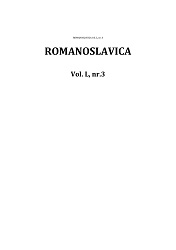Stereotipi o jugoslovenskom identitetu u rumunskoj književnosti u Vojvodini: 1945-1952
Stereotypes of Yugoslav Identity in Romanian Literature in Vojvodina: 1945-1952
Author(s): Mirjana ĆorkovićSubject(s): Romanian Literature, Sociology of Culture, WW II and following years (1940 - 1949), Post-War period (1950 - 1989), Politics and Identity, Sociology of Literature
Published by: Editura Universităţii din Bucureşti
Keywords: socialist realism; Romanian literature; Vojvodina; Yugoslavia; identity; stereotypes;
Summary/Abstract: Socialist realism was a dominant literary method in socialist countries after the World War II. Literary texts were expected to reflect socialist reality, and had a prominent ideological function. In this article we have applied imagological approach to Romanian literature in Vojvodina, investigating images about the first years after the WWII, created between 1945-1952. The goal was to research how “a new, Yugoslav society” was constructed in literary images, based on an in- and out-group stereotypes that reflected characteristics of the “new, socialist man and woman” and their new roles in the time of “brotherhood and unity”. The research has confirmed strong relation between state politics, cultural politics and literature, as well as changeability of positive or negative valued images, according to the change of socio-political and cultural frame they were constructed in.
Journal: Romanoslavica
- Issue Year: L/2014
- Issue No: 3
- Page Range: 17-25
- Page Count: 9
- Language: Serbian

